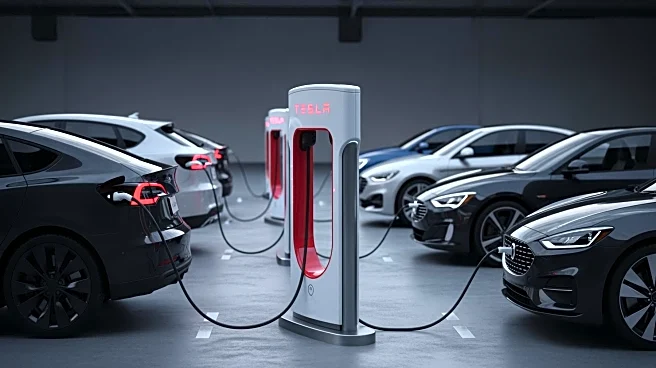What's Happening?
The latest electric vehicles are adopting Tesla's Supercharger ports, leading to a surge in the need for adapters at public charging stations. Models like the Lucid Gravity, Rivian R1S, and Hyundai Ioniq
5 now require adapters to connect to non-Tesla charging networks. This transition to Tesla's North American Charging Standard (NACS) is causing complications for EV owners, as they navigate the need for multiple adapters to charge their vehicles at various stations.
Why It's Important?
The shift to Tesla's charging ports highlights the growing influence of Tesla's infrastructure in the EV market. As more automakers adopt this standard, it could lead to increased compatibility issues and challenges for consumers. This development may prompt charging network providers to innovate and adapt their systems to accommodate the new standard, potentially impacting the EV charging landscape.
What's Next?
Charging network providers like ChargePoint and Electrify America are exploring solutions to address the adapter challenges. ChargePoint is introducing the Omni Port, which integrates adapters into charging stations, while Electrify America is testing NACS charging at select locations. These efforts aim to simplify the charging experience for EV owners and ensure compatibility across different networks.
Beyond the Headlines
The transition to Tesla's charging standard may accelerate the standardization of EV charging infrastructure, encouraging collaboration among automakers and charging providers. This could lead to a more seamless and efficient charging experience for consumers, driving further adoption of electric vehicles.









